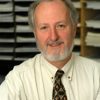 The Royal Society of Canada has recently announced new Fellows in the Academies of Arts and Humanities, Social Sciences, and Science. They have been elected by their peers for their outstanding scholarly, scientific and artistic achievement. Recognition by the RSC is the highest honour an individual can achieve in the Arts, Social Sciences and Sciences.
The Royal Society of Canada has recently announced new Fellows in the Academies of Arts and Humanities, Social Sciences, and Science. They have been elected by their peers for their outstanding scholarly, scientific and artistic achievement. Recognition by the RSC is the highest honour an individual can achieve in the Arts, Social Sciences and Sciences.
The RSC also welcomed new Members of the College of New Scholars, Artists and Scientists, that include top mid-career leaders in Canada. The College provides the RSC with a multigenerational capacity to help Canada and the world address major challenges and seize new opportunities including those identified in emerging fields.
“These exceptionally talented scholars, artists and scientists have made an outstanding mark in their fields, advancing knowledge and creating a positive impact on the world. We are thrilled to welcome them, knowing they will continue to work towards a better future for all of us based on deep knowledge and understanding of the past and present” says RSC President, Chad Gaffield.
Congratulations to the Canadian neuroscientists elected to this prestigious Society!
New fellows of the Royal Society of Canada
BLIER, Pierre – Department of Cellular and Molecular Medicine, University of Ottawa
 Pierre Blier’s sophisticated and translational approaches to neuroscience and pharmacology have contributed to the identification of the neural pathways that are involved in the effects of antidepressants, to the understanding of the neurochemical processes involved in major depressive disorder, and to the improvement of its treatment. He is also a key contributor to the development of standards and policies in the field.
Pierre Blier’s sophisticated and translational approaches to neuroscience and pharmacology have contributed to the identification of the neural pathways that are involved in the effects of antidepressants, to the understanding of the neurochemical processes involved in major depressive disorder, and to the improvement of its treatment. He is also a key contributor to the development of standards and policies in the field.
https://www.uottawa.ca/brain/people/blier-pierre
FRANKLAND, Paul – Neurosciences & Mental Health, The Hospital for Sick Children Research Institute, University of Toronto

Paul Frankland is recognized as a world leader in memory research. His studies have uncovered the neurobiological processes underlying how we learn, remember and, in some cases, forget. Knowledge gained from Prof. Frankland’s research provides a foundation for the development of better treatments for memory related disorders.
http://www.sickkids.ca/AboutSickKids/Directory/People/F/Paul-Frankland.html
JOSSELYN, Sheena – Neurosciences & Mental Health, The Hospital for Sick Children Research Institute, University of Toronto
 Sheena Josselyn is a world leader in investigating how the brain encodes, stores and uses information. Her studies break new ground and have changed the way the field of neuroscience views memory. The fundamental insights gained by Prof. Josselyn’s research into basic memory processes in rodents may translate into superior ways of treating – or even preventing – devastating human brain disorders.
Sheena Josselyn is a world leader in investigating how the brain encodes, stores and uses information. Her studies break new ground and have changed the way the field of neuroscience views memory. The fundamental insights gained by Prof. Josselyn’s research into basic memory processes in rodents may translate into superior ways of treating – or even preventing – devastating human brain disorders.
http://www.sickkids.ca/AboutSickKids/Directory/People/J/Sheena-Josselyn.html
MEINERTZHAGEN, Ian – Department of Psychology and Neuroscience, Dalhousie University
 Ian Meinertzhagen is a pioneer in connectomics, the comprehensive mapping of brain networks. Internationally acclaimed for research on simple nervous systems his work reveals circuit models for all brains. In Drosophila he has identified neurons for motion vision. Meinertzhagen’s studies of photoreceptor axon growth were critical for the then nascent field of developmental neuroscience. He showed that circuits are influenced by experience, refuting a prevailing orthodoxy that insect brains are hard-wired.
Ian Meinertzhagen is a pioneer in connectomics, the comprehensive mapping of brain networks. Internationally acclaimed for research on simple nervous systems his work reveals circuit models for all brains. In Drosophila he has identified neurons for motion vision. Meinertzhagen’s studies of photoreceptor axon growth were critical for the then nascent field of developmental neuroscience. He showed that circuits are influenced by experience, refuting a prevailing orthodoxy that insect brains are hard-wired.
http://flylab.psychology.dal.ca/index.html
ORSER, Beverley – Department of Anesthesia and Physiology, University of Toronto
 Beverley Orser first identified how general anesthetics cause memory deficits in adults that persist long after the drugs are eliminated from the body. Her landmark papers demonstrated the cause: increased activity of extrasynaptic inhibitory neural receptors. These receptors are targets for anesthetics and other neurodepressive drugs, and, when activated, can impair memory. Her studies have fundamentally advanced our understanding of the neurobiology underlying general anesthesia and have improved patient care.
Beverley Orser first identified how general anesthetics cause memory deficits in adults that persist long after the drugs are eliminated from the body. Her landmark papers demonstrated the cause: increased activity of extrasynaptic inhibitory neural receptors. These receptors are targets for anesthetics and other neurodepressive drugs, and, when activated, can impair memory. Her studies have fundamentally advanced our understanding of the neurobiology underlying general anesthesia and have improved patient care.
http://www.anesthesia.utoronto.ca/dr-beverley-orser
New Members of the College of New Scholars, Artists and Scientists
KIRTON, Adam – Departments of Pediatrics and Clinical Neurosciences, University of Calgary
 Adam Kirton is a Pediatric Neurologist and Professor of Pediatrics and Clinical Neurosciences at the University of Calgary. He has built an internationally recognized research program that combines epidemiology with advanced neuroimaging and non-invasive brain stimulation to understand how young brains develop following perinatal injuries. His team then translates this new knowledge to execute novel neuromodulation trials to optimize function and future opportunities for disabled children and their families.
Adam Kirton is a Pediatric Neurologist and Professor of Pediatrics and Clinical Neurosciences at the University of Calgary. He has built an internationally recognized research program that combines epidemiology with advanced neuroimaging and non-invasive brain stimulation to understand how young brains develop following perinatal injuries. His team then translates this new knowledge to execute novel neuromodulation trials to optimize function and future opportunities for disabled children and their families.
https://hbi.ucalgary.ca/profiles/dr-adam-kirton
LIU-AMBROSE, Teresa – Department of Physical Therapy, The University of British Columbia
 Teresa Liu-Ambrose, UBC Professor of Physical Therapy and Canada Research Chair, is an international leader in Healthy Aging Research. Using rigorous clinical trial methodology, she has pioneered insights into various types of exercise programmes in preventing cognitive decline and falls in older adults. Her work has led to surprising and highly influential insights in an area of profound societal need. She has assumed leadership roles in major Canadian and international forums and projects, and translated her findings to directly benefit patients.
Teresa Liu-Ambrose, UBC Professor of Physical Therapy and Canada Research Chair, is an international leader in Healthy Aging Research. Using rigorous clinical trial methodology, she has pioneered insights into various types of exercise programmes in preventing cognitive decline and falls in older adults. Her work has led to surprising and highly influential insights in an area of profound societal need. She has assumed leadership roles in major Canadian and international forums and projects, and translated her findings to directly benefit patients.
https://physicaltherapy.med.ubc.ca/person/teresa-liu-ambrose/
SAPIEHA, Przemyslaw (Mike) – Département d’ophtalmologie et de biochimie et médecine moléculaire, Université de Montréal

Mike (Przemyslaw) Sapieha is the Wolfe Professor in translational vision research, Canada Research Chair in retinal cell biology and director of the Neurovascular Eye Disease Lab at the Université de Montréal. His team made several fundamental discoveries implicating deregulation of neuronal metabolism and cellular senescence in retinal vascular diseases such as diabetic retinopathy and age related macular degeneration. Notably, he identified critical roles for Semaphorins and Netrins in these diseases.
http://recherche.maisonneuve-rosemont.org/en-ca/research/our-research-investigators/przemyslaw-mike-sapieha.html
